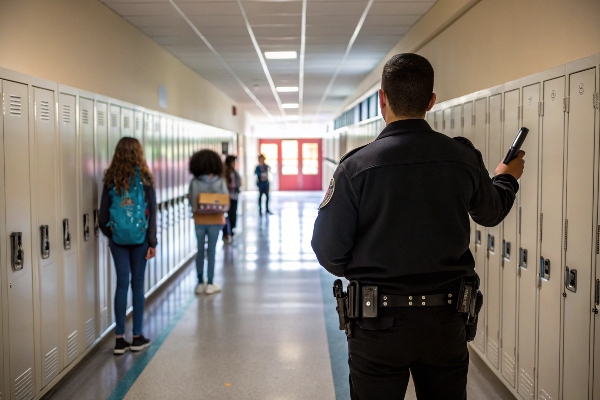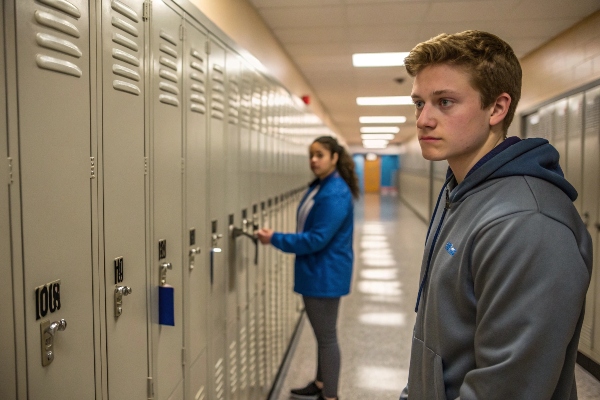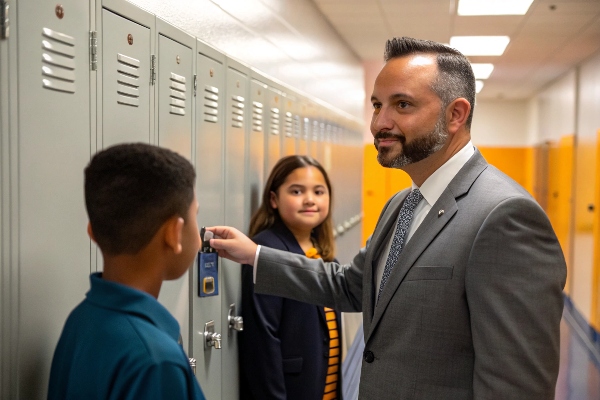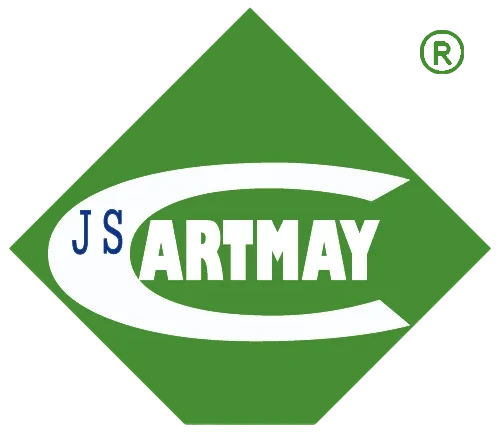
Searching lockers in schools is a contentious issue, balancing the need for maintaining a safe environment with respecting students’ privacy. Lockers are school property, and schools often reserve the right to inspect them to ensure safety and compliance with rules. However, this practice raises questions about how to balance institutional authority with student privacy1.
Schools should have the ability to search lockers to maintain safety, but these searches must be conducted with respect for students’ rights and clear policies in place.
Should Schools Be Able to Search Students’ Lockers?

Schools often justify locker searches2 as necessary for maintaining safety and preventing prohibited items, such as weapons, drugs, or contraband, from entering the premises. Since lockers are considered school property, administrators typically have the legal right to inspect them.
Schools should be allowed to search lockers to ensure safety, provided that searches are reasonable and adhere to school policies.
Arguments for Locker Searches:
-
Safety and Security:
- Locker searches help prevent dangerous items from being brought into schools.
-
Policy Enforcement:
- Ensures that students follow rules, such as not storing prohibited items.
-
Legal Precedent:
- Courts often uphold the school’s right to search lockers as they are school property.
Arguments Against Locker Searches:
-
Privacy Concerns:
- Students may feel their personal space is being violated.
-
Trust Issues:
- Frequent searches can create distrust between students and school staff.
-
Potential for Misuse:
- Without clear policies, searches could be arbitrary or discriminatory.
Locker searches should strike a balance between maintaining safety and respecting student dignity.
Do Students Have a Right to Privacy of Their Personal Belongings at School?

Students have a limited right to privacy at school, which is balanced against the school’s responsibility to maintain a safe learning environment. While personal belongings like backpacks and phones are generally considered private, lockers fall into a gray area as they are school property.
Students have some privacy rights at school, but their expectations of privacy in lockers are limited since lockers belong to the school.
Key Considerations:
-
Reasonable Expectation of Privacy:
- Courts often determine that students have a lower expectation of privacy in lockers compared to their personal belongings.
-
Search Policies:
- Schools must establish clear policies outlining when and how locker searches can occur.
-
Parental Notification:
- Some schools notify parents or guardians when a locker search is conducted, ensuring transparency.
-
Fourth Amendment Rights:
- In the US, locker searches are subject to the Fourth Amendment, which protects against unreasonable searches. However, the standard for schools is lower than for law enforcement.
While students do have privacy rights, these are often secondary to a school’s obligation to protect its community.
Are Teachers Allowed to Look Through Your Locker?

Teachers generally do not have the authority to search lockers without the involvement of school administrators. Locker searches are typically conducted by principals or authorized personnel following school policies.
Teachers are not usually allowed to search lockers on their own; locker searches are generally conducted by administrators under specific guidelines.
Guidelines for Locker Searches:
-
Authorized Personnel:
- Searches are often conducted by principals, vice-principals, or security staff, not individual teachers.
-
Justification:
- A search usually requires reasonable suspicion of a rule violation or safety concern.
-
Policy Adherence:
- Searches must align with the school’s written policies, ensuring fairness and consistency.
-
Parent and Student Rights:
- Schools may involve parents or guardians to maintain transparency and avoid disputes.
Although teachers play a role in maintaining discipline, locker searches are typically outside their direct responsibilities unless explicitly authorized.
Conclusion
Locker searches in schools are a complex issue that balances safety and privacy. Schools generally have the right to search lockers, as they are school property, but these searches should be conducted with respect and clear guidelines. Students retain limited privacy rights, which schools must consider while maintaining security. By implementing transparent policies and ensuring searches are justified, schools can foster a safe environment without undermining trust or student dignity.

